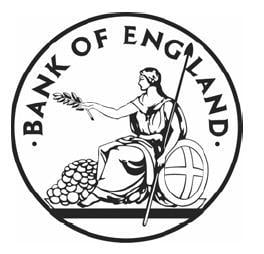
13:47 PM, 7th February 2019, About 5 years ago 2
Text Size
The Bank of England’s Monetary Policy Committee (MPC) today voted unanimously to maintain Bank Rate at 0.75% with a reduction in forecast growth slowing inflationary pressures.
The Office for National Statistics estimates that the size of the UK economy increased by 0.3% in the three months to November, around half the rate of growth seen on average over the past five years. Economic growth has also slowed in other countries such as Germany, the United States and China reducing demand for UK exports
However, the slowing of growth is also a result of reduced spending by households and reduced investment by companies in the UK. Most of the increase in inflation due to the fall in the pound has now happened and oil and gas prices have fallen since November. Reflecting these developments, inflation is now back close to the medium term 2% target.
Any future interest rate rises have been pushed further out and should be gradual and limited.
The ONS reports that pay increased by 3.3% in the three months to November 2018 compared to the previous year. Faster pay growth is good news and it will support spending in the UK and help the economy grow, but it will also place some upward pressure on companies’ costs and the prices they charge. That upward pressure on prices is why the MPC think a gradual and limited increase in interest rates over the next few years is needed to keep inflation at the 2% target.
The full Monetary Policy Summary and minutes of the Monetary Policy Committee meeting:
“The Committee voted unanimously to maintain the stock of sterling non-financial investment-grade corporate bond purchases, financed by the issuance of central bank reserves, at £10 billion. The Committee also voted unanimously to maintain the stock of UK government bond purchases, financed by the issuance of central bank reserves, at £435 billion.
The MPC’s latest projections for inflation and activity are set out in the accompanying February Inflation Report. They are conditioned on a smooth adjustment to the average of a range of possible outcomes for the UK’s eventual trading relationship with the European Union and the gently rising path of Bank Rate implied by market yields.
The world economy has continued to slow over recent months, with a broad-based softening across all regions. That deceleration reflects the past tightening in global financial conditions, as well as the initial impact of trade tensions on business sentiment. Global growth is expected to dip below trend in coming quarters, weighing on UK net trade, before rising to around potential rates. Activity is projected to be supported by the more accommodative monetary policies in all major economic areas that markets now expect.
UK economic growth slowed in late 2018 and appears to have weakened further in early 2019. This slowdown mainly reflects softer activity abroad and the greater effects from Brexit uncertainties at home. These uncertainties could lead to greater-than-usual short-term volatility in UK data, which may therefore provide less of a signal about the medium-term outlook. Heightened uncertainty and elevated bank funding costs are assumed to subside over time, as greater clarity on future trading arrangements is assumed to emerge. These developments, together with looser fiscal policy, provide support to domestic spending. In the Committee’s central projection, quarterly GDP growth recovers later this year, with four-quarter growth rising to 2% by the end of the forecast period.
CPI inflation fell to 2.1% in December and is expected to decline to slightly below the MPC’s 2% target in the near term, largely due to the sharp fall in petrol prices which has occurred since November. As that effect unwinds, CPI inflation rises above 2%. The MPC judges that demand and potential supply are currently broadly in balance. The weaker near-term outlook is likely to lead to a small margin of slack opening up this year. Thereafter, demand growth exceeds the subdued pace of supply growth and excess demand builds over the second half of the forecast period. As a result, domestic inflationary pressures firm, as the upward pressure on inflation of sterling’s past depreciation wanes. Under the assumptions that condition the February Report, inflation settles at a rate a little above the target.
The Committee judges that, were the economy to develop broadly in line with its Inflation Report projections, an ongoing tightening of monetary policy over the forecast period, at a gradual pace and to a limited extent, would be appropriate to return inflation sustainably to the 2% target at a conventional horizon.
The economic outlook will continue to depend significantly on the nature of EU withdrawal, in particular: the new trading arrangements between the European Union and the United Kingdom; whether the transition to them is abrupt or smooth; and how households, businesses and financial markets respond. The appropriate path of monetary policy will depend on the balance of these effects on demand, supply and the exchange rate. The monetary policy response to Brexit, whatever form it takes, will not be automatic and could be in either direction. The MPC judges at this month’s meeting that the current stance of monetary policy is appropriate. The Committee will always act to achieve the 2% inflation target.”
Previous Article
Southend council HMO licensing debacleNext Article
How can taking a salary reduce our tax bill?
Beaver
11:18 AM, 8th February 2019, About 5 years ago
Is it just me that thinks that the last paragraph of the MPC's report can be adequately paraphrased as "..we dunno.." 🙂
Old Mrs Landlord
12:20 PM, 9th February 2019, About 5 years ago
Reply to the comment left by JJ at 08/02/2019 - 11:18
An accurate summary would be "It depends..." (which effectively means ..."we dunno").